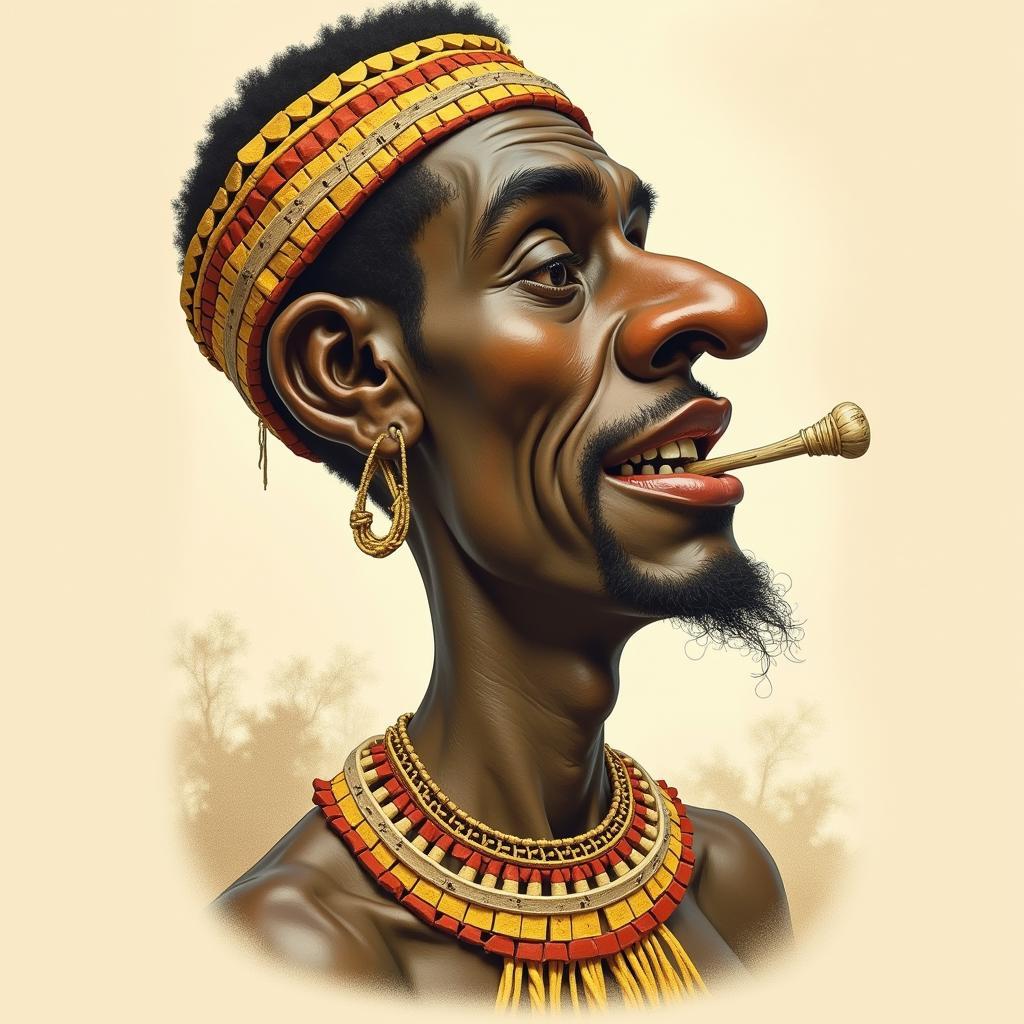African Ankle Bracelets: Meaning and Significance
African ankle bracelets, more than just simple adornments, hold deep cultural significance and meaning across the diverse continent. They are a tangible expression of history, tradition, and personal identity, varying widely in style, material, and symbolism depending on the specific region and culture. Understanding the meaning behind these captivating pieces allows us to appreciate the rich tapestry of African artistry and heritage.
Whether crafted from beads, metal, or other materials, these anklets often communicate social status, marital status, age, or even spiritual beliefs. Let’s explore the fascinating world of African ankle bracelets and uncover the stories they tell.
Uncovering the Symbolism of African Ankle Bracelets
African ankle bracelets often serve as a visual language, communicating a wealth of information about the wearer. In some cultures, the material used signifies social standing. For instance, elaborate gold or silver anklets might indicate wealth and prestige, while beaded anklets, though equally beautiful, might represent a different social group. This nuanced symbolism makes them more than just decorative items; they become emblems of identity within a community.
The style and design can also hold specific meaning. Some anklets feature charms or pendants that symbolize protection, fertility, or good luck. Others are intricately woven with patterns that tell stories or represent ancestral lineages. The number of anklets worn can also be significant, representing different stages of life or levels of initiation within a particular group. Learning about these traditions opens a window into the intricate social structures and belief systems of African cultures.
More Than Just Ornaments: Functionality and Tradition
Beyond their symbolic value, African ankle bracelets sometimes serve practical purposes. In some communities, they’re worn to produce a rhythmic sound while dancing, adding another layer to the artistic expression. This rhythmic accompaniment enhances the overall performance, connecting the dancer to the earth and the rhythms of the culture. Think of it as an extension of the dancer’s voice, adding to the storytelling through sound and movement. Even the small bells or charms on african dancing feet with beads hold meaning and contribute to the overall aesthetic of traditional dance.
In other cases, anklets can be indicators of marital status, similar to wedding rings in Western cultures. For example, a specific type of anklet might be worn by married women to signal their commitment. This visible marker helps reinforce societal structures and expectations. These anklets become part of a larger cultural narrative, reflecting shared values and traditions passed down through generations.
African Ankle Bracelets Across the Continent: A Regional Perspective
The meanings associated with African ankle bracelets can vary significantly from one region to another. While certain materials or designs may hold universal significance, the specifics are often unique to particular ethnic groups or geographic areas. For example, the Maasai people of East Africa are known for their elaborate beaded jewelry, including ankle bracelets, which play a crucial role in their cultural identity.
Similarly, in West Africa, the Ashanti people have a rich tradition of crafting gold and silver anklets, often adorned with symbolic charms. These regional variations highlight the incredible diversity of African culture and the importance of understanding the specific context when interpreting the meaning of ankle bracelets. Check out these cute african baby girl outfits for a different style of adorning young children. And for young boys, explore traditional african boy dress up options.
What do ankle bracelets symbolize in African culture?
Ankle bracelets can symbolize social status, marital status, age, spiritual beliefs, or even act as a rhythmic accompaniment during traditional dances.
Are African ankle bracelets only worn by women?
While often associated with women, ankle bracelets are also worn by men in some African cultures, holding different meanings depending on the specific tradition.
“Ankle bracelets are more than just beautiful ornaments,” says Dr. Abena Osei, a renowned anthropologist specializing in West African cultures. “They are powerful symbols of identity, tradition, and social connection within African communities.”
A Legacy of Adornment: Preserving Cultural Heritage
African ankle bracelets represent a tangible connection to the rich history and artistic traditions of the continent. By understanding their diverse meanings, we can appreciate the depth and complexity of African cultures. These ornaments are not just accessories; they are stories waiting to be told.
In conclusion, African ankle bracelets hold profound meaning, reflecting a vibrant tapestry of cultural traditions and individual expression. From social status to spiritual beliefs, these adornments tell stories and connect wearers to their heritage. Understanding the significance of these pieces allows us to appreciate the richness and diversity of African culture. Try some fun african crafts for kids to further explore this rich culture!
FAQ
-
What are African ankle bracelets typically made of? Materials range from beads, metal (gold, silver, brass), leather, and even woven fibers.
-
Are there specific occasions when ankle bracelets are worn? Yes, some are worn daily, while others are reserved for special events like weddings, festivals, or coming-of-age ceremonies.
-
Can I wear African ankle bracelets as a non-African? Absolutely! Appreciating and respectfully wearing adornments from other cultures can be a beautiful way to connect with different traditions. However, it’s important to be mindful of the cultural significance and avoid appropriating sacred or culturally sensitive items.
-
How do I choose an appropriate African ankle bracelet? Research different styles and their meanings to find one that resonates with you. Consider supporting African artisans by purchasing authentic pieces.
-
Where can I buy authentic African ankle bracelets? Look for reputable sellers online, in fair trade shops, or during travels to African countries.
“The rhythmic jingle of ankle bracelets during a traditional dance is not just a pleasant sound,” adds Adebayo Olajide, a master drummer from Nigeria, “it’s a vital part of the storytelling, connecting the dancers to their ancestors and the spirit of the community.”
Further Exploration
Are you curious about other aspects of African culture? Explore our website for articles on African music, cuisine, and other captivating traditions.
For assistance or inquiries, contact us at +255768904061, kaka.mag@gmail.com, or visit us in Mbarali DC Mawindi, Kangaga, Tanzania. Our customer service team is available 24/7.


